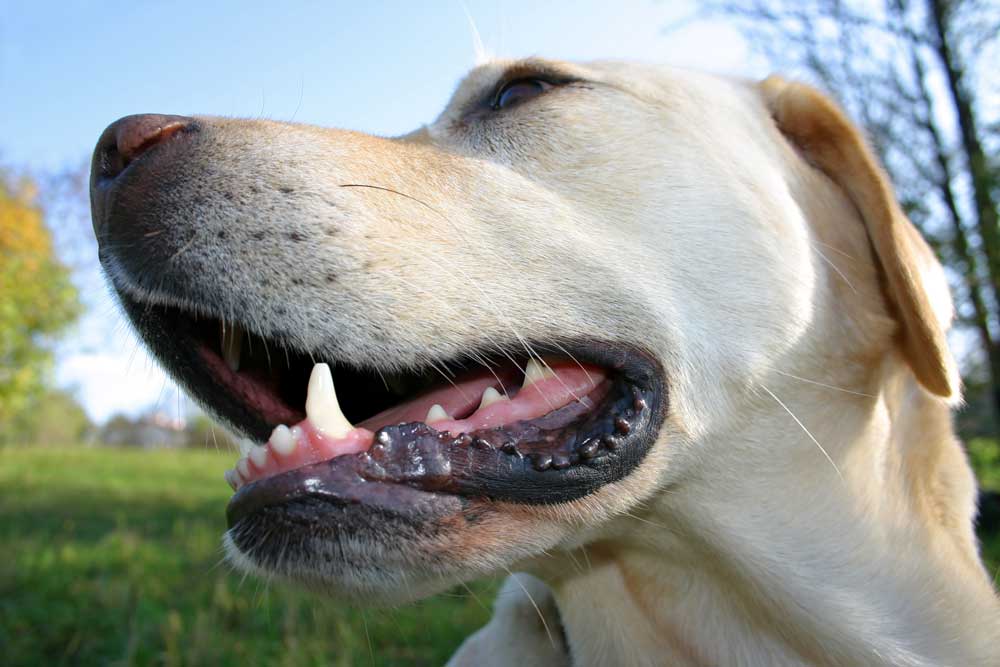During National Pet Dental Health Month in February, our pets’ smiles take center stage.
Periodontal disease is the most common health problem in dogs and cats. This scary disease can lead to serious systemic conditions – but it’s preventable. In honor of National Pet Dental Health Month, here’s a few tips to keep your animal companion’s mouth healthy:
1. Have your pet’s teeth examined by your veterinarian annually
Early detection and correction of dental disease is best! If needed, your vet can perform a thorough dental scaling and polishing to give you a head start on developing healthy dental hygiene for your pet.
2. Brush your pet’s teeth on a daily or weekly basis
The easiest way to get your pet used to regular at-home brushing is to start when they’re young. Brushing can be gradually introduced to older pets. If your pet resists the brush, try an easier dental health solution. Canine oral sprays are becoming increasingly popular, and certain dental supplement can be added directly to your pet’s water.
3. Never use human toothpaste on pets
The ingredients can be toxic to animals. Ask your veterinarian which dental health products are appropriate for pets. Look for one with an enticing flavor like chicken or beef!
4. Pay attention to signs and symptoms of dental disease
Untreated dental infections can spread to the heart and other organs and quickly become life-threatening. Regular dental checkups are essential to help maintain your pet’s dental health. If you notice any of the symptoms below, take your pet into your veterinarian as soon as possible:
- Bad breath— If it’s beyond the usual “doggy breath,” it may be a sign that periodontal disease has already started.
- Frequent pawing or rubbing at the face and/or mouth.
- Reluctance to eat hard foods.
- Red swollen gums and brownish teeth.
5. Give him dental treats and toys!
There are many dental chews and toys on the market that are specifically designed to help control plaque and tartar buildup. Consult with your veterinarian fir st to ensure the product is safe and effective. Avoid toys that are abrasive and can wear down the teeth. If your dog is an aggressive chewer, choose softer toys, or other chews that soften to avoid possible tooth damage. Always supervise your dog when he is chewing on a toy.








